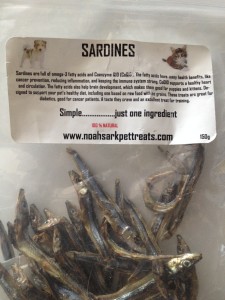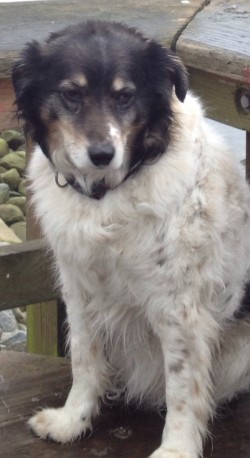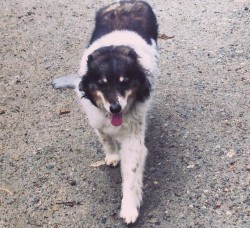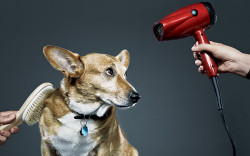Pancreatitis in Dogs and Cats
Posted by  Charlene Eberle on June 15, 2014
Charlene Eberle on June 15, 2014
I’ve notice lately that a few of my friends and family’s dogs have been diagnosed with Pancreatitis and I wanted to get some more information. This disease and or intolerance to food seems odd to me or is it just a sign that all our food, unless we grow it ourselves is chalked full of badness that our animals are getting sicker. The research only speaks of fatty food so I’m probably over analyzing but it is odd to me that in under 6 moths 5 dogs have been diagnosed. Non of them are over weight, most of them are very small dogs.
Pancreatitis is inflammation and swelling of the pancreas. It can occur in a mild or severe form. The cause of spontaneous pancreatitis in dogs is not well understood. Dogs taking corticosteroids are at increased risk. There is a higher incidence of pancreatitis in dogs with Cushing’s syndrome, diabetes mellitus, hypothyroidism, and idiopathic hyperlipemia (a disease of Miniature Schnauzers). These diseases are associated with high serum lipid levels. Pancreatitis is also more prevalent in overweight spayed females and dogs on high-fat diets. An attack may be triggered by eating table scraps or a fatty meal.
What happens during a bout of pancreatitis?
Pancreatitis is an inflammation of the pancreas, causing leakage of the digestive enzymes whereby the pancreas literally starts to “digest itself”. Pancreatitis can be acute (sudden) or chronic (happening over a course of time).
Both acute and chronic forms are serious and can be life-threatening, especially the acute form.
What causes pancreatitis?
For the majority of cases, the cause is unknown. Pancreatitis can occur in both dogs and cats, but is more common in dogs, especially the acute form. Cats more commonly have the chronic form, and it can be difficult to diagnose.
Here are some potential risk factors:
- High fat meal (trigger for hyperlipidemia)
- Hyperlipidemia (high fat content in blood)
- Obesity (especially dogs)
- Concurrent disease – i.e. Cushing’s, Diabetes Mellitus
- Contaminated food or water
- Certain drugs and toxins – i.e. some types of diuretics, antibiotics, and organophosphate insecticide
- Bacterial or viral infection
What are the signs of pancreatitis?
The signs can vary from mild gastrointestinal upset to collapse and death. Most animals present with common gastrointestinal signs of upset, such as:
- Vomiting
- Not eating
- Painful abdomen, hunched appearance (more common in dogs
- Fever or below-normal body temperature
- Diarrhea
- Depression
- Dehydration, evaluated by noting sunken eyes, dry mouth, and increased skin turgor (skin tents when pinched)
These signs are not specific for pancreatitis, and can be seen with many gastrointestinal diseases and conditions. All or some of the signs may be noted in an individual patient with pancreatitis.
Cats can be especially difficult to diagnose due to the vague signs they exhibit with chronic pancreatitis – depression/lethargy and poor appetite are seen with regularity, and gastrointestinal signs of vomiting, diarrhea, and / or pain are seen intermittently.
How is pancreatitis diagnosed?
Your veterinarian will evaluate your pet’s history (i.e. getting into the garbage, eating a lot of food they normally don’t – especially fatty foods, etc.), do a thorough physical examination, and likely do blood tests to rule out other diseases and to check pancreatic enzymes. Radiographs may also be done to rule out a gastric or intestinal foreign body or other GI diseases or conditions.
What is the treatment for pancreatitis?
Treatment for this disease is supportive, meaning that there isn’t usually a direct cause and cure, but supporting the animal while allowing healing. The veterinary team will take care of the animal’s fluid needs via IV, pain management, and will address any other disease processes (infection, diabetes, etc.) while letting the pancreas heal on its own.
Resting the pancreas and gastrointestinal system is key, and this means no food or water by mouth for 1 to 5 or more days while on IV fluids. This is dependent on the severity of each case, and the animal must be on fluids and other support to survive and heal the pancreas while off of oral food and water.
What about follow up care post-recovery, and what is involved in the management of chronic Pancreatitis?
Your vet will likely prescribe a low-fat, high-fiber diet to aid in your pet’s recovery and to prevent future bouts of pancreatitis. Depending on your pet’s case, the diet recommendations may be for life for optimal health and preventative care.
Keep your dogs weight under control. Looking for low fat foods, no table scrapes are helpful in not having your dog or cat contracting this disease. Once they get it they will always have it so best to keep it under control as much as possible and those of you with puppies should stick with a good diet as well.
I’ve started my dogs on GO – http://www.petcurean.com/?gclid=CPb9_PzJ_L4CFUFrfgodVwsA_gI’m a firm believer on no Asian products imported, this company is Canadian. Check their website out.

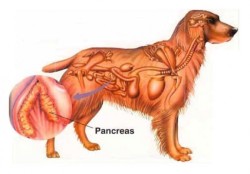






![image[5a]](http://www.sammyandstone.com/wp/wp-content/uploads/2014/04/image5a-250x250.jpeg)
